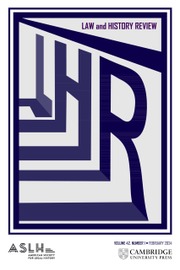State and Family in China
In Imperial China, the idea of filial piety not only shaped family relations but was also the official ideology by which Qing China was governed. In State and Family in China, Yue Du examines the relationship between politics and intergenerational family relations in China from the Qing period to 1949, focusing on changes in family law, parent-child relationships, and the changing nature of the Chinese state during this period. This book highlights how the Qing dynasty treated the state-sponsored parent-child hierarchy as the axis around which Chinese family and political power relations were constructed and maintained. It shows how following the fall of the Qing in 1911, reform of filial piety law in the Republic of China became the basis of state-directed family reform, playing a central role in China's transition from empire to nation-state.
- Shows how the state in China shaped family relations through concrete legal mechanisms
- Examines parent-child relations that define the Chinese family and how this is connected to the state
- Engages those interested in Chinese history and politics, as well as scholars of family law, gender, childhood or state building
Reviews & endorsements
'Through nuanced analysis of extensive archives and legal practices, this stimulating book sheds completely new light on the ideological and juridical centrality of the family and filial piety to the state and society of late imperial and modern China. It is a highly valuable contribution to multiple fields including Chinese studies and comparative law and history.' Li Chen, University of Toronto
'The legal cases in State and Family in China frame an elegant and innovative history of the transfigurations of filial piety in the state’s interventions into hierarchical family dynamics from the Qing through the Republican period. As Yue Du shows, even as the Nationalists gave new rights to adult children curtailing the absolute authority of biological parents, they established Sun Yat-sen as the omnipresent Father of China’s modern citizenry.' Maram Epstein, University of Oregon
'Offering a dynamic and sweeping portrait of China’s filial tradition from the Qing Dynasty to the present day, Yue Du proves that the multifaceted ways in which successive Chinese regimes cultivated, deployed (or denounced) filial obligation remain essential not only to understand Chinese society in the past, but also the PRC’s vision of its future. Calling upon vivid legal records, this book demonstrates how filiality may well be the most significant relationship for interpreting Chinese law, family, and governance. In this book we find a startling and sobering analysis of the exploitation and manipulation of family hierarchies by parents, evolving legal systems, and an invasive state.' Johanna Ransmeier, University of Chicago
Product details
November 2021Hardback
9781108838351
350 pages
235 × 158 × 20 mm
0.59kg
Available
Table of Contents
- Introduction: filial piety beyond confucianism
- Part I. Ruling the Empire through the Principle of Filialit:
- 1. 'Parents can never be wrong:' punishing rebellious children as a didactic show
- 2. Policies and counterstrategies: negotiating state-sponsored filiality in the everyday
- 3. 'Parenting all under heaven on behalf of heaven:' state-sponsored filiality and imperial rulership
- Part II. Building the Nation through Restructuring the Family:
- 4. Reorienting parent-child relations: from parents' authority to children's rights
- 5. Reconceptualizing parent-child relations: from life-long parental privilege to transitory guardianship
- 6. A constitutional agenda: remaking the family to make a new state
- Conclusion: filial piety toward the state.










